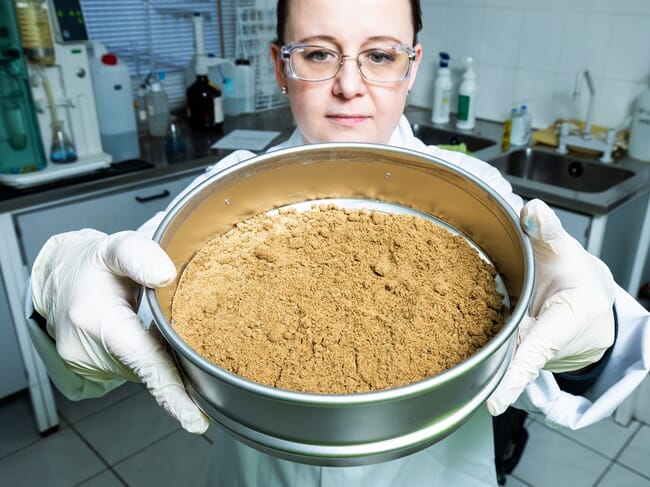
© Karen Murray, IFFO
The agriculture and food sector accounts for a third of greenhouse gas emissions. Yet, only 3 percent of public climate funding is allocated to it (Global Alliance for the Future of Food, 2022).
Nutrition is a complex science which cannot be decoupled from sustainability and its three pillars (social, economic and environmental). Consumer preferences for food vary according to a range of factors including a person’s income, location, level of education and gender. Nutrition should be thought within planetary boundaries.
Drawing on decades of knowledge about nutrition and feeds, the marine ingredients industry has a strong value proposition. It has been supporting aquaculture’s annual growth rate of 7.5 percent (FAO 2020) since 1970.
Based on calculations from third parties and open to all, we know that aquaculture is the most efficient way to use those small pelagic species which don’t have a market for direct human consumption. The most preferable use for them is direct human consumption but such a usage is very limited because of small pelagics’ specific features: short lifespan, volatile and seasonal harvesting. Instead of wasting them, transforming them into fishmeal and fish oil is the best option. It is underpinned by a 1:5 multiplier effect: 1 kg of marine raw materials used in aquafeeds gives 5 kg of farmed fish.
Adding to this an increasing volume of leftovers from fish processing (by-products), that also provide high quality fishmeal and fish oil, and it’s clear that aquaculture can rely on reliable volumes of feed ingredients from the marine sector moving forward (average over the last decade has been at 5 million tonnes of fishmeal and one million tonne of fish oil produced annually).
Nutrient-rich small pelagic species offer benefits that are passed on to humans via farmed fish. The intake of long chain omega-3 fatty acids (EPA and DHA) is associated with lower risk of cardiovascular disease and obesity. Small pelagics present an important contribution beyond omega-3s, with high levels of minerals, vitamins, amino-acids and phospholipids (which enhance the use of the super-nutrients EPA and DHA), which are found in fishmeal and fish oil.
IFFO operates at a global level. The marine ingredients industry does generate impacts and our role is to continue to leverage our convening power, throughout the value chain, to help advocate for actions that include aquatic foods in the global nutrition agenda. Our biggest challenge is reputation: fishing is associated with ocean depletion and it is our constant mission to explain that the picture is much more nuanced.
“When well-managed, wild stocks of fish and other aquatic animals are important renewable resources that can be harvested indefinitely at sustainable levels,” the authors of the Worldfish Research and Innovation Strategy 2030 write.
We must not be complacent with ourselves but continue to take our part in advocating better fisheries management and making sure such measures are implemented within the marine ingredients sector.




